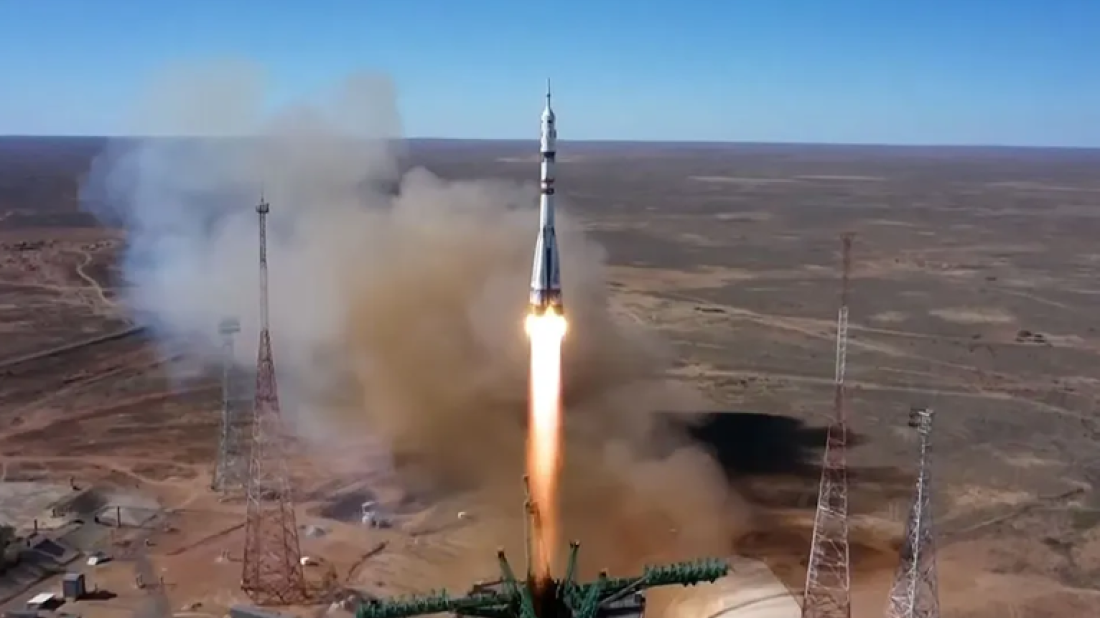Qarabağ FK host Newcastle in Champions League playoff tie
Qarabağ FK will face Newcastle United in the UEFA Champions League play-off round on Wednesday evening in Baku, in what will be the first UEFA compet...

Kazakhstan’s Prime Minister Olzhas Bektenov has announced a major reform initiative aimed at strengthening national sovereignty in the country’s space sector.
A key component of these reforms involves reducing the amount of land leased to Russia at the Baikonur Cosmodrome, one of the world’s oldest and largest space launch facilities.
Bektenov revealed that Russia currently utilizes only three out of the ten available launch pads at Baikonur, leaving the remaining facilities largely unused. In response, Kazakhstan plans to reclaim thousands of square metres of leased territory to better support domestic space projects and international startups.
“The process to withdraw a 1,747-square-kilometre area from the rented territory is underway,” the Prime Minister stated.
“This reclaimed land will be developed into a special economic zone designed to foster innovation and growth in Kazakhstan’s space industry," he added.
Alongside these territorial changes, Kazakhstan is actively advancing its own satellite programs. Since 2023, the country has been working on the Earth observation satellite KazEOSat-MR, with its inaugural launch scheduled for 2027. Additionally, a feasibility study is in progress for replacing the KazSat-3 satellite.
Rocket production is also receiving increased attention. Kazakhstan already possesses advanced design capabilities and has tested an experimental rocket model. The country aims to conduct its first small sounding rocket launch by the end of this year.
Development efforts at Baikonur continue under the Baiterek project, a joint venture with Russia focused on constructing the new Soyuz-5 launch vehicle. The first launch from this modernized complex is expected in December.
In parallel, Kazakhstan is exploring new ways to open Baikonur to the world beyond space missions. The historic cosmodrome, famous as the launch site of the first human in space, is being developed into a year-round tourist destination. Kazakhstan’s national tourism company, Kazakh Tourism, has presented a concept to transform Baikonur into a hub for event-based, scientific, industrial, and educational tourism.
Currently, Baikonur attracts around 20,000 visitors annually, mostly during rocket launches that occur about ten times a year. However, with improved infrastructure and new attractions, Kazakh Tourism estimates the spaceport could welcome up to 250,000 tourists each year. The plan includes regular guided tours during non-launch periods, upgrades to local museums, international marketing campaigns, and promoting the Baikonur brand abroad.
Officials also hope that increased tourism will stimulate private investment in the region, encouraging growth in hospitality and related services - sectors that have struggled due to low visitor numbers outside of launches.
Baikonur’s mayor has noted the city’s need for more hotels, a challenge that steady tourism could help resolve.
Although Baikonur is located on Kazakh soil, the city, cosmodrome, and surrounding territory have been leased to Russia since 1994 under a long-term agreement set to run until 2050. Russia currently pays Kazakhstan approximately $200 million annually for the lease.
Despite this arrangement, Kazakhstan is leveraging Baikonur’s global significance to expand its role as a scientific and cultural landmark.
Cuba’s fuel crisis has turned into a waste crisis, with rubbish piling up on most street corners in Havana as many collection trucks lack enough petrol to operate.
Iran’s Revolutionary Guards navy held military exercises in the Strait of Hormuz on Monday (16 February), state-linked media reported. The drill took place a day before renewed nuclear negotiations between Tehran and Washington in Geneva.
Ruben Vardanyan has been sentenced to 20 years in prison by the Baku Military Court after being found guilty of a series of offences including war crimes, terrorism and crimes against humanity.
Canadian Prime Minister, Mark Carney, announced on 16 February that the Honourable Janice Charette has been appointed as the next Chief Trade Negotiator to the United States. She's been tasked with overseeing the upcoming review of the Canada-United States-Mexico Agreement (CUSMA).
The Pentagon has threatened to designate artificial intelligence firm Anthropic as a “supply chain risk” amid a dispute over the military use of its Claude AI model, according to a report published Monday.
The United Nations Development Programme (UNDP) has warned that clearing the vast of rubble in Gaza could take up to seven years at the current pace, as the overwhelming majority of residents continue to live in what it describes as extremely dangerous conditions.
Kyrgyzstan faces a critical political turning point as elite splits and public protests highlight deep divisions in Bishkek. Analysts warn that President Japarov’s dismissal of a top ally could shift the balance of power and threaten Kyrgyzstan’s political stability.
Tehran’s right to develop and use nuclear energy for peaceful purposes is “inherent, inalienable, and non‑negotiable,” Iranian Foreign Minister, Abbas Araghchi, told the high-level segment of the United Nations Conference on Disarmament in Geneva on Tuesday (17 February).
Georgia’s ruling party, Georgian Dream, is moving to criminalise what it calls “extremism against the constitutional order”, introducing a new article to the Criminal Code that could lead to prison sentences of up to three years.
For many Palestinians, the holy month of Ramadan is being observed amid hunger, displacement and uncertainty. Families are relying on humanitarian aid to uphold faith and dignity, even as violence, poverty and restrictions shape daily life.
You can download the AnewZ application from Play Store and the App Store.

What is your opinion on this topic?
Leave the first comment